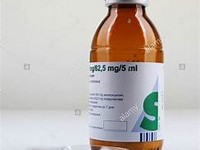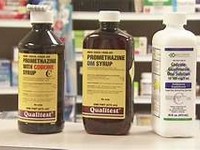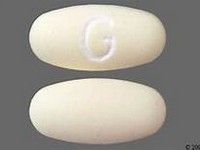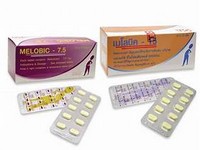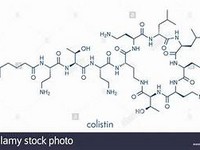Bivalirudin

Bivalirudin
CLINICAL USE
Anticoagulant:
Percutaneous coronary intervention DOSE IN NORMAL RENAL FUNCTION
Initially bolus of 750 mcg/kg then an infusion of 1.75 mg/kg/hour PHARMACOKINETICS
Molecular weight :2180.3 %Protein binding :0 %Excreted unchanged in urine : 20 Volume of distribution (L/kg) :0.1half-life – normal/ESRD (hrs) :13–37 minutes/ 57 minutes (310 minutes in dialysis patients on non- HD days) DOSE IN RENAL IMPAIRMENT
GFR (mL/MIN)
30–50 Dose as in normal renal function10–30 Normal bolus dose. Reduce infusion dose by 20% (1.4 mg/kg/hour). See ‘Other Information’ <10 : Normal bolus dose. Reduce infusion dose by 80% and monitor ACT. See ‘Other Information’ DOSE IN PATIENTS UNDERGOING RENAL REPLACEMENT THERAPIES
CAPD :Unknown dialysability. Dose as for GFR <10 mL/min HD :Dialysed. Dose as for GFR <10 : mL/min HDF/high flux :Dialysed. Dose as for GFR <10 : mL/minCAV/VVHD :Unknown dialysability. Dose as for GFR=10–29 mL/min IMPORTANT DRUG INTERACTIONS
Potentially hazardous interactions with other drugsAntiplatelets and anticoagulants: increased risk of bleedingThrombolytics: may increase risk of bleeding complications; enhance effect of bivalirudin ADMINISTRATION
Reconstition
Reconstitute each 250 mg vial with 5 mL water for injection Route
IV Rate of Administration
1.75 mg/kg/hour Comments
Further dilute with 50 mL sodium chloride 0.9% or glucose 5% if for infusionStable for 24 hours at room temperature OTHER INFORMATION
Monitor ACT in renal impairment Can start bivalirudin 30 minutes after stopping unfractionated heparin and 8 hours after stopping LMWHNo known antidote Dose recommendations vary from country to country; doses above are from New ZealandUK doses: GFR=30–59 mL/min: reduce dose by —20%GFR<30 mL/min: contraindicated —USA doses: Normal dose: 1 mg/kg bolus then —2.5 mg/kg infusionGFR=30–59 mL/min: reduce dose by —20%GFR=10–29 mL/min: reduce dose by —60%Dialysis dependent: reduce dose by —90%Lobo BL. Use of newer anticoagulants in patients with chronic kidney disease. Am J Health-Syst Pharm. 2007, Oct 1; 64: 2017–26:GFR=30–50 mL/min: 1.75 mg/kg/hour —GFR<30 mL/min: 1 mg/kg/hour —On haemodialysis: 0.25 mg/kg/hour
See how to identify renal failure stages according to GFR calculation
See how to diagnose irreversible renal disease
Home


